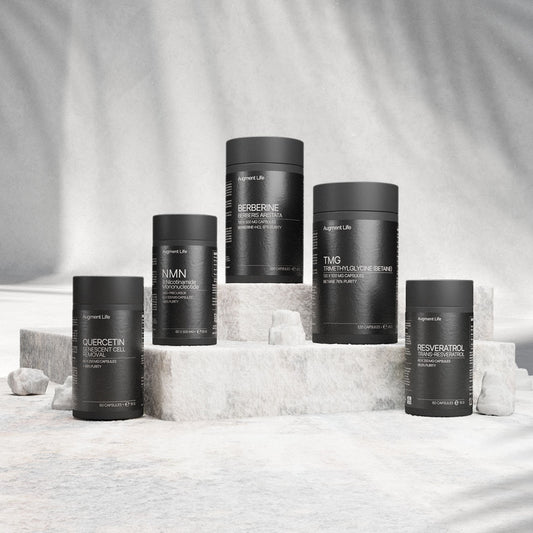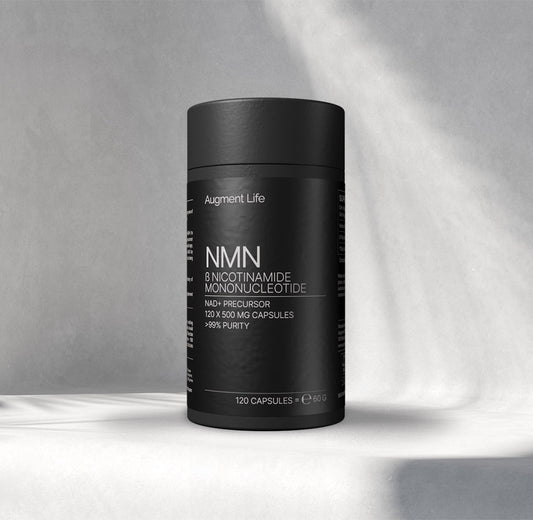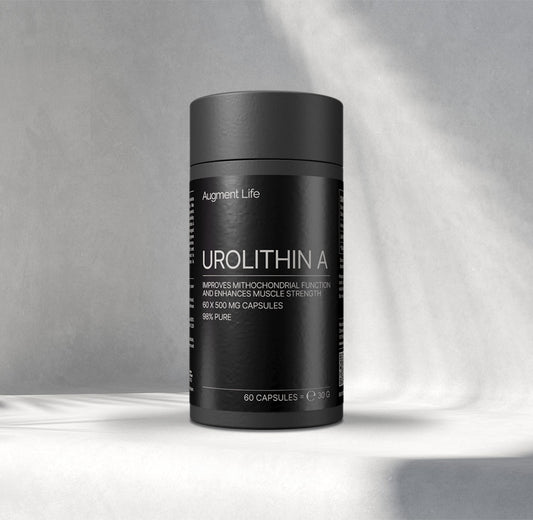Fisetin is a powerful antioxidant found naturally in fruits like strawberries, apples, grapes, and persimmons. It’s becoming well-known for its impressive health benefits. Early and clinical research shows that fisetin may protect the brain, reduce inflammation, and fight oxidative stress. With such a wide range of potential benefits, fisetin is gaining popularity as a natural supplement for overall health (1).
In this article, we’ll look at the best dosage of fisetin and key pointers for its safe and effective use.
Clinical insights into effective dosing
Clinical studies often use a daily dose of 100 mg of fisetin. For example, one study used 100 mg of fisetin to determine whether it helps with inflammation and metastatic factors in colorectal cancer patients. The patients took fisetin for seven weeks, in the middle of their chemotherapy cycles. The results suggest that fisetin supplementation may help reduce inflammation in patients with colorectal cancer (2).
The dose of 100 mg per day is supported by a lot of studies that demonstrated its effectiveness and safety in enhancing overall health (3). Experience the benefits of fisetin with the confidence that this well-researched dosage is designed for optimal results.
Read more about the benefits of fisetin in our other article "Fisetin - Health Benefits, Dosage, Side Effects".
Starting the Supplementation With Fisetin
Even though some clinical trials on fisetin exist, there is no universally recommended dosage for fisetin as a dietary supplement.
For most people, starting with a daily dose between 100 mg and 250 mg of fisetin is generally recommended. This range is widely recognized as both safe and effective for enhancing overall health and wellness. The typical recommended dosage for fisetin supplements falls between 100 mg and 500 mg daily.
Research has investigated various dosages, with some studies using 200 mg/day for moderate effects and others exploring higher amounts, such as 800 mg/day, for more pronounced benefits (4).
In summary, while 100 mg daily is a well-supported and commonly used dosage for general supplementation, other studies have explored lower and higher dosages depending on the specific health benefits being investigated. It’s always important to consult a healthcare professional before starting any new supplement regimen, especially at higher doses.
Fisetin – Safety and Side Effects
Fisetin is widely considered safe when consumed through food, with no significant toxicity reported in humans. While short-term studies highlight its positive safety profile, we still don’t have any data on long-term usage. Current research is going to look into the safety of taking fisetin for a longer time, for extended health benefits (5).
Keep an eye on the latest findings as they unfold, confirming fisetin’s benefits and safety for your daily use.
Literature sources:
- Khan N, Syed DN, Ahmad N, Mukhtar H. Fisetin: a dietary antioxidant for health promotion. Antioxid Redox Signal. 2013 Jul 10;19(2):151-62. doi: 10.1089/ars.2012.4901.
- Farsad-Naeimi A , Alizadeh M , Esfahani A , Darvish Aminabad E . Effect of fisetin supplementation on inflammatory factors and matrix metalloproteinase enzymes in colorectal cancer patients. Food Funct. 2018 Apr 25;9(4):2025-2031. doi: 10.1039/c7fo01898c.
- Wang L, Cao D, Wu H, Jia H, Yang C, Zhang L. Fisetin Prolongs Therapy Window of Brain Ischemic Stroke Using Tissue Plasminogen Activator: A Double-Blind Randomized Placebo-Controlled Clinical Trial. Clin Appl Thromb Hemost. 2019 Jan-Dec;25:1076029619871359. doi: 10.1177/1076029619871359.
- Hodgin KS, Donovan EK, Kekes-Szabo S, Lin JC, Feick J, Massey RL, Ness TJ, Younger JW. A Placebo-Controlled, Pseudo-Randomized, Crossover Trial of Botanical Agents for Gulf War Illness: Resveratrol (Polygonum cuspidatum), Luteolin, and Fisetin (Rhus succedanea). Int J Environ Res Public Health. 2021 Mar 3;18(5):2483. doi: 10.3390/ijerph18052483.
- Nabizadeh, F. Neuroprotective role of Fisetin in Alzheimer's disease: An overview of potential mechanism and clinical findings. Neurology Letters, 2024; 3(Special Issue (Diagnostic and Therapeutic advances in Neurodegenerative diseases)): 14-25. doi: 10.61186/nl.3.2.14.












